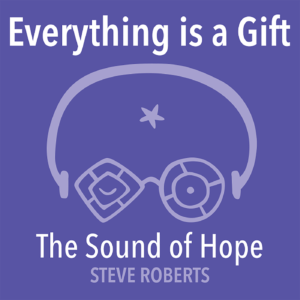 So why did the United Airlines customer ejection fiasco occur, and what can we learn from it that can serve our ability to make healthy choices in every circumstance that comes our way for the rest of eternity? (After all, why would we pay attention to anything if that weren’t the payoff?)
So why did the United Airlines customer ejection fiasco occur, and what can we learn from it that can serve our ability to make healthy choices in every circumstance that comes our way for the rest of eternity? (After all, why would we pay attention to anything if that weren’t the payoff?)
In case you’ve had better things to do than stay abreast of nasty soap operas, here’s the gist of this one:
United had a plane completely full of passengers and ready for takeoff. At this point the airline decided that one passenger at random would need to forfeit his or her seat so that someone (a United employee, I believe) could use that seat and fly to wherever the plane was headed. Based on what criteria I don’t know (and it doesn’t really matter), United selected a passenger, a man, to be bumped. And when that man was informed that he had to leave the plane, he refused. After all, he had a confirmed ticket and boarding pass, and probably his seat belt was already securely fastened. Whatever, if any, creative, non-violent negotiation strategies United had in place for such a circumstance were quickly exhausted. The cops were called. The man was forcibly carried off the plane, bloody face and all. Of course the event was videoed by the smart phones of who knows how many fellow passengers. Also of course the videos went viral. And, until public response became deafening and the company’s stock took a hit, United’s CEO seemed to think that the airline’s approach to this situation was consistent with the company slogan “Fly the friendly skies.”
So what really was the problem at the deepest level?
It’s the problem at the core of just about every harmful choice we humans make. One that is right up there among the reasons we, and the institutions we’re a part of, aren’t all that great at responding well to whatever life presents.
The problem is the lack of clarity on the purpose and values we want to guide us, and an active practice of learning how to live that commitment. Without a heart well-honed by the heavy lifting of attempting to act in harmony with a noble aspiration, it may be all but impossible to make consistent, life-affirming decisions––especially in the face of adversity.
Imagine if United, upon adopting “Fly the friendly skies,” had committed itself to continually defining, with all employees participating, what the slogan’s invitation meant in every conceivable engagement with a customer. Further, that one measure of the company’s health would be the degree to which every United colleague understood and employed the spirit of that slogan in every choice they made.
Imagine if, somewhere along the way, United had committed itself to the audacious goal of being perceived by its customers and the world as a benchmark of two qualities essential to any healthy person or institution: kindness, and learning from our experience.
Yes, such commitments are herculean. They can terrify those with an aversion to conflict, for every commitment brings with it the conflict between who we are and who we aspire to be. The bigger the commitment, the bigger the conflict. Perhaps that’s why sainthood is so hard to achieve, as is being a master of tiddledywinks. The unwillingness to become proficient at managing fear, key to managing conflict, is a big reason so many of us shy away from commitments of the “who I will be or die trying” nature.
Yet, for the willing, there are plenty of brilliant, creative souls who can help an organization’s leadership establish such a foundation, and then devise strategies and tactics that can address anything––even violence––in that spirit.
It seems that nothing remotely akin to these commitments was in play as United approached this event.
Imagine the inner turmoil of those United employees whose very best sense of the values and purpose of their company led them to conclude that manhandling this particular passenger and risking having the event broadcast to the world was the best decision they could make.
Those employees, in my view, are worthy of compassion. They were simply ignorant, immature. Because their CEO is ignorant, immature. Because their Board of Directors is ignorant, immature.
Indeed, all of them are worthy of our compassion. Who of us is not painfully aware of how easy it is to do crazy shit if our actions are not grounded in a strong sense of who we will be or die trying?
May the pain of it inspire United.
And all of us.




Richard L Jorgensen said:
Google the Milgram experiment.
Sally Lonegren said:
More wise and well-considered words Steve!! Thank you………..!!